Books
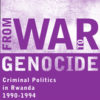
From War to Genocide: Criminal Politics in Rwanda, 1990–1994
By André Guichaoua. Translated by Don E. Webster, Foreword by Scott Straus. In April 1994 Rwanda exploded in violence, with political, social, and economic divisions most visible along ethnic lines of the Hutu and Tutsi factions. The ensuing killings resulted in the deaths of as much as 20 percent of Rwanda’s population. André Guichaoua, who…
Read more
After Nuremberg: Exploring Multiple Dimensions of the Acceptance of International Criminal Justice
Edited by Susanne Buckley-Zistel, Friederike Mieth and Marjana Papa This is an all-online edited volume. In lieu of a blurb here is an excerpt from the introduction: “Following World War II, a number of Germans responsible for heinous crimes were taken to court in the city of Nuremberg. In total, 22 people were tried by…
Read more
Enhanced Interrogation: Inside the Minds and Motives of the Islamic Terrorists Trying to Destroy America
By James E. Mitchell & Bill Harlow. From August 2002 through January 2009, James E. Mitchell served as a contractor for the Central Intelligence Agency. He developed the program used to interrogate detainees in US custody in various secret CIA “black sites” around the world. In Enhanced Interrogation, Mitchell now offers a first-person account of…
Read more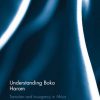
Understanding Boko Haram: Terrorism and Insurgency in Africa
Edited by James J. Hentz and Hussein Solomon. The primary objective of this book is to understand the nature of the Boko Haram insurgency in northeast Nigeria. Boko Haram’s goal of an Islamic Caliphate, starting in the Borno State in the North East that will eventually cover the areas of the former Kanem-Borno Empire, is a…
Read more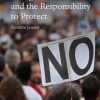
Anti-genocide Activists and the Responsibility to Protect
By Annette Jansen. Although the Genocide Convention was already adopted by the UN General Assembly in 1945, it was only in the late 1990s that groups of activists emerged calling for military interventions to halt mass atrocities. The question of who these anti-genocide activists are and what motivates them to call for the use of…
Read more
Holocaust and Genocide Denial: A Contextual Perspective
Edited by Paul Behrens, Olaf Jensen and Nicholas Terry. This book provides a detailed analysis of one of the most prominent and widespread international phenomena to which criminal justice systems has been applied: the expression of revisionist views relating to mass atrocities and the outright denial of their existence. Denial poses challenges to more than one…
Read more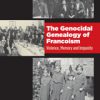
The Genocidal Genealogy of Francoism: Violence, Memory and Impunity (Paperback)
By Antonio Miguez Macho. First published in October 2015, now available in paperback edition. The Francoist command in the Spanish Civil War carried out a programme of mass violence from the start of the conflict. Through a combination of death squads and the use of military trials around 150,000 Spaniards met their deaths. Others perished in…
Read more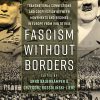
Fascism without Borders: Transnational Connections and Cooperation between Movements and Regimes in Europe from 1918 to 1945
Edited by Arnd Bauerkämper and Grzegorz Rossoliński-Liebe. It is one of the great ironies of the history of fascism that, despite their fascination with ultra-nationalism, its adherents understood themselves as members of a transnational political movement. While a true “Fascist International” has never been established, European fascists shared common goals and sentiments as well as similar…
Read more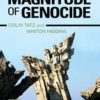
The Magnitude of Genocide
By Colin Tatz and Winton Higgins. This book defines genocide, distinguishing it from mass murder, war crimes, and other atrocities; allows readers to grasp the magnitude of the crime of genocide across time and throughout human civilization; and facilitates an understanding of new and potential cases of genocide as they occur. Recently, the topic of intervention…
Read more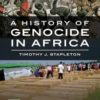
A History of Genocide in Africa
By Timothy J. Stapleton. Based on a series of detailed case studies, this book presents the history of genocide in Africa within the specific context of African history, examining conflicts in countries such as Burundi, Democratic Republic of Congo, Namibia, Rwanda, and Sudan. Why has Africa been the subject of so many accusations related to genocide?…
Read more
